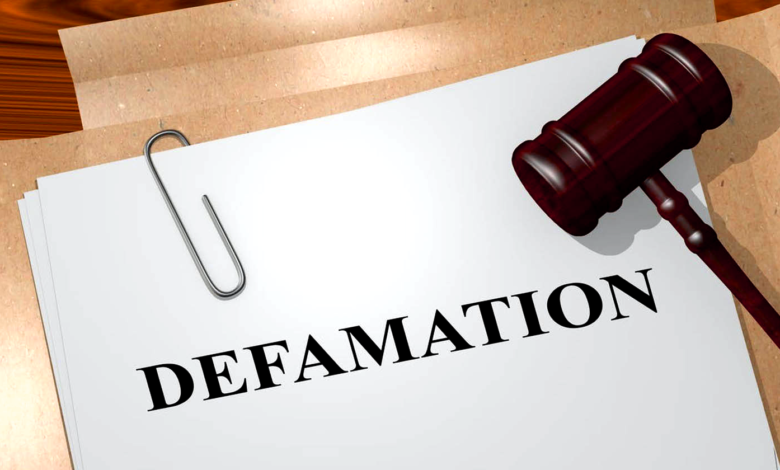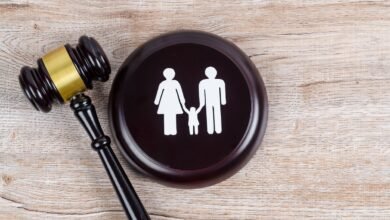Defamation: Understanding the Legal Implications

In a world where communication is easier than ever, defamation has become a prominent issue. Understanding the legal implications of defamation is crucial to navigating the complexities of our interconnected society. This article explores the various facets of defamation, its consequences, and how to protect yourself from being a victim or perpetrator of this damaging act.
What is defamation?
Defamation is a legal term used to describe the act of making false statements about someone with the intent to damage their reputation. These false statements can take two forms: slander, which pertains to spoken words, and libel, which involves written or printed statements. In both cases, the false statements are communicated to a third party, and they can have serious repercussions for the subject of the defamation.
Types of Defamation
Understanding the types of defamation is fundamental to grasping its legal implications.
- Slander: This is spoken defamation. It often occurs in verbal conversations, broadcasts, or public speeches.
- Libel: Libel is written or printed defamation. It can be found in newspapers, magazines, books, or any other written medium.
- Per Se Defamation: Some statements are so damaging that the law presumes harm. In such cases, the plaintiff doesn’t need to prove that the false information caused damage.
- Public Figure Defamation: Public figures, such as celebrities and politicians, face a higher burden of proof. They need to demonstrate “actual malice,” meaning that the false statement was made with knowledge of its falsity or reckless disregard for the truth.
- Private Person Defamation: This category covers false statements about private individuals. Here, the plaintiff typically needs to prove negligence or intent in making the defamatory statement.
Elements of Defamation
To establish a defamation claim, certain elements must be present:
- False Statement: The statement must be untrue. Truth is an absolute defense against defamation claims.
- Publication: The false statement must be communicated to a third party. Merely telling the person about whom the announcement was made doesn’t constitute defamation.
- Harm: The false statement must cause damage to the subject’s reputation. The damage can be financial, professional, or personal.
- Fault: Depending on the jurisdiction, the plaintiff must prove that the defendant acted negligently or with actual malice.
Defamation vs. Freedom of Speech
The right to freedom of speech is a cornerstone of democratic societies, but it’s not absolute. Defamation laws exist to strike a balance between protecting one’s reputation and safeguarding freedom of expression. This balance is essential to understanding the legal implications of defamation.
Defamation Laws Around the World
Defamation laws vary widely by country. Some nations have strict defamation laws, while others are more lenient. It’s important to understand these differences, especially in a globally connected world, where statements can easily cross borders.
The Role of Social Media
The advent of social media has revolutionized how defamation occurs. False statements can spread rapidly across digital platforms, causing significant harm to individuals. We will delve into the impact of social media on slander and the legal consequences that ensue.
Famous Defamation Cases
- The Case of McDonald’s and Hot Coffee: In this famous case, a customer sued McDonald’s for serving scalding hot coffee that caused severe injuries. The subsequent media coverage led to public perception issues.
- Lance Armstrong’s Defamation Lawsuits: The world-renowned cyclist faced a series of defamation lawsuits after allegations of doping. These cases highlight the complexities of defamation involving public figures.
Consequences of Defamation
The consequences of defamation can be severe. A damaged reputation can result in loss of employment, financial burdens, strained personal relationships, and even psychological distress. Understanding these potential outcomes underscores the gravity of defamation.
How to Protect Yourself
Protecting yourself from being involved in a defamation case consists of being cautious with your words and actions. We’ll discuss preventative measures, such as fact-checking and responsible communication, to reduce the risk of inadvertently defaming someone.
Read More: Responding to Domestic Violence Legally
Steps to Take if You’re Defamed
If you find yourself a victim of defamation, it’s crucial to take specific actions to protect your reputation and legal rights. We’ll guide you on what to do in such distressing situations, including seeking legal advice and addressing the issue promptly.
Defamation in the Digital Age
With the internet playing a central role in our lives, defamation has found new avenues to thrive. We’ll explore how online platforms and digital media have reshaped the landscape of defamation, making it easier for false statements to reach a wide audience.
Impact on Reputation
A damaged reputation can have long-lasting repercussions. It can affect personal and professional relationships, causing emotional distress and financial losses. We’ll discuss strategies for reputation management and recovery in the event of defamation.
Conclusion
Defamation is a complex legal issue with significant implications. Balancing the fundamental right to freedom of speech with the need to protect one’s reputation is an ongoing challenge. Understanding the various aspects of defamation is crucial to navigating this intricate legal landscape.
FAQs
1. What is the difference between slander and libel?
Slander refers to spoken defamation, while libel involves written or printed defamatory statements.
2. Can an individual be sued for expressing their opinion?
Freedom of speech generally protects the right to express an opinion. However, if presented as a false fact, it may cross into the realm of defamation.
3. Are defamation laws the same in every country?
No, defamation laws vary by country, with different standards and requirements.
4. How can one prove defamation?
To prove defamation, one must demonstrate the presence of false statements, publication, harm to reputation, and fault.
5. What should you do if you are falsely accused of defamation?
If falsely accused of defamation, seek legal advice and take appropriate steps to protect your rights.












One Comment